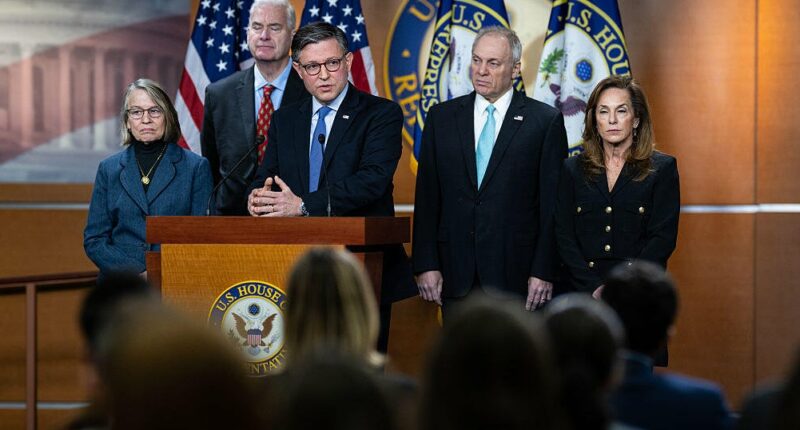Share this @internewscast.com
In a bid to prevent potential political repercussions, four Republican lawmakers joined forces with Democrats to back a discharge petition aimed at compelling a vote on extending tax credits for three more years. Although the proposed Democratic bill doesn’t incorporate the reforms Republicans have advocated for, some moderate members believe that preserving the current system is preferable to letting the credits lapse, which could lead to significantly higher premiums for their constituents.
Here are the four Republicans who supported the discharge petition:
- Brian Fitzpatrick of Pennsylvania
- Mike Lawler of New York
- Rob Bresnahan of Pennsylvania
- Ryan Mackenzie of Pennsylvania
“In my view, while a straightforward extension without income restrictions or reforms isn’t ideal, allowing the credits to expire would be even worse,” remarked Fitzpatrick on Tuesday night. He made this comment after unsuccessfully attempting to secure a vote on his amendment, which sought to extend subsidies while implementing reforms.
Lawler described last week’s unsuccessful Senate vote on the Democrats’ three-year extension as merely a “messaging exercise” on Tuesday, yet he decided to sign the petition regardless.
“If we concur that an extension is necessary and acknowledge that the expiration of the enhanced premium tax credit would lead to higher premiums, then it is crucial for us to work together in a bipartisan manner,” Lawler stated during a meeting of the House Rules Committee on Tuesday night.
By Wednesday, Lawler clarified that his signature did not equate to full support for the Democrats’ proposal. “However, when leadership completely obstructs action, it is Congress’s duty to step in,” he asserted.
Bresnahan said Democrats’ discharge petition was the “only way to protect the 28,000 people in my district from higher costs.”
“Doing nothing was not an option, and although this is not a bill I ever intended to support, it is the only option remaining,” he wrote.
















